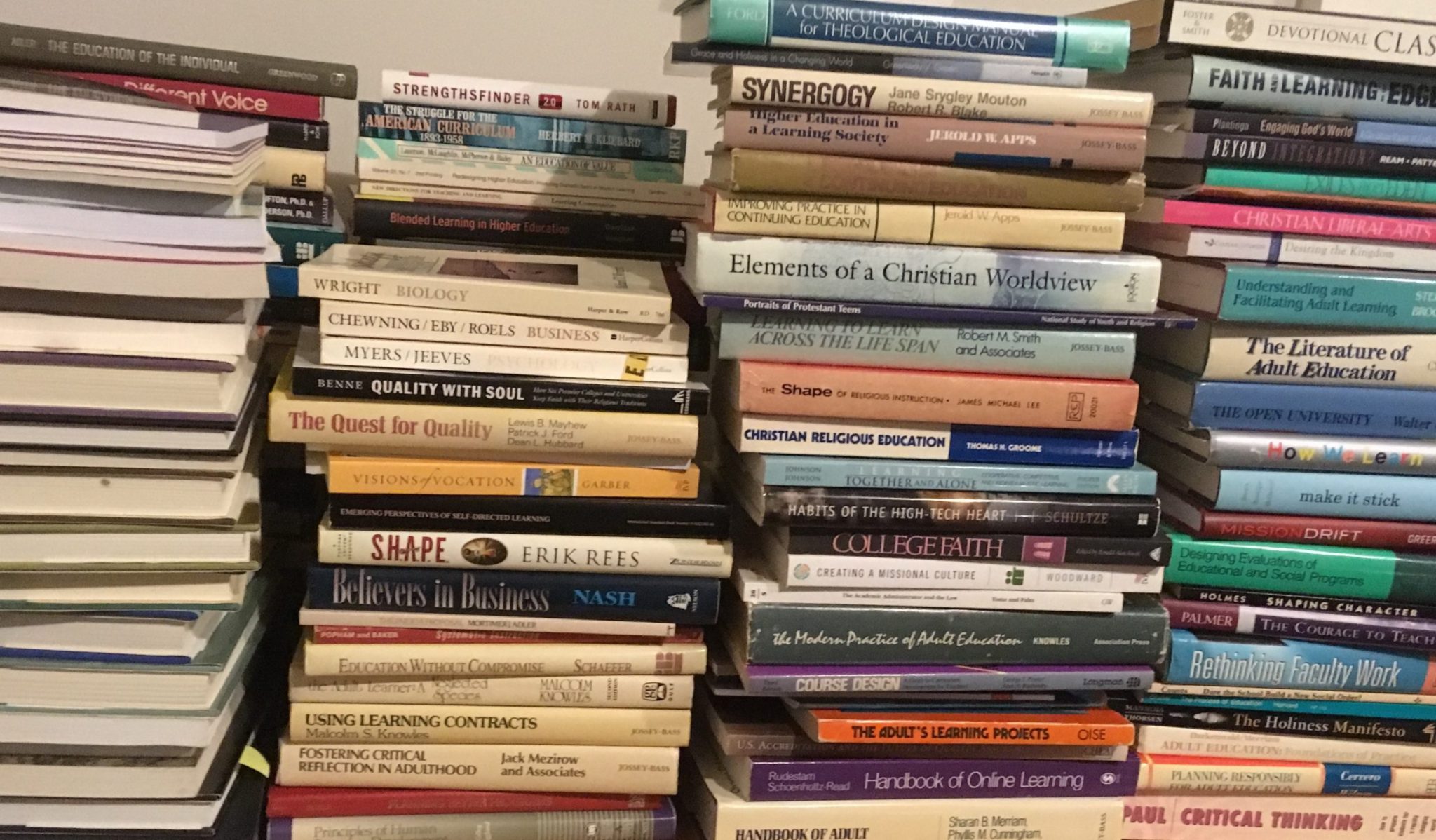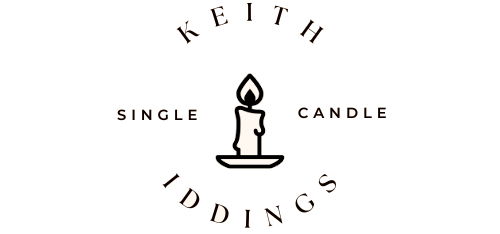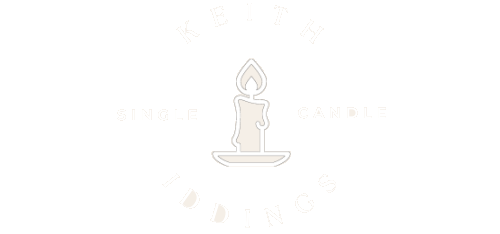Who Am I?

I’ve finally got my car in the garage, just in time for winter. For the past couple years, one side of our garage was filled with “stuff.” We had crammed it with all my woodworking equipment, empty moving boxes from the past move, lawn and garden tools, assorted games, coolers, folding chairs, and scrap wood. All the things you might expect to clutter “extra” space.
In addition, the garage contained boxes of books that had filled the shelves in the offices I had occupied as a university provost and academic leader. As I took the time to sort, discard, and give away pile upon pile of books, I found myself caught off guard by the emotion it evoked. I wasn’t likely to need any of them anymore. Though they were marked up and frequently referenced in my past occupation, it seemed highly unlikely I would ever look at them again. So why did the process of shedding them hurt so much?
Somehow these books on higher education administration, theory, and philosophy symbolized the ending of an identity I had held for more than a quarter century. When I was introduced, it was often in terms of this identity. When I interacted with students, faculty, and staff, it was my role as provost or dean that formed the context of the discussion. When I handed my business card to leaders in the community, the title and role accompanied their impressions of me. Even with family and friends, I was not immune from the “pride of position” that determined to a degree how I was viewed.
So this past week, as I have shed the books of my craft, I have also tried to shed the last vestiges of my past occupation. It has not been easy. Though I have always preached humility and servanthood, I have come to realize through this process just how much I have grown to love the subtle deference and esteem of my past roles. In significant ways, I have framed my own identity around the prestige of being an academic leader at universities. Stripping that away symbolically by divesting myself of my books has caused me to ask, “Who am I?”
Of course the answer to that question is complex. My identity is not just my job title. I’m also a husband, a father, a grandfather, a son, a brother, a neighbor, a friend, a church member, a citizen, etc. The list is extensive. At any given moment, which identity controls my actions, emotions, and self-perceptions may be different. The shifts of identity have profound effects on my whole psyche.
While we aren’t all suffering from multiple personality disorder, we all have multiple identities. Which one(s) becomes dominant in our life shapes the person we become. Some identities feel better to us than others. Some we acknowledge and proudly announce to those around us. Others we keep hidden in the shadows because they are sources of shame. Irrespective, the identities we shape our lives around are extremely influential. We don’t let them go easily. At least this has been the case for me.
In the Broadway musical, Les Miserables, the main character, Jean Valjean, agonizes over which identity he will acknowledge. A convicted felon currently being hunted by the police, he has been able to adopt a whole new persona becoming a businessman and mayor of a town. But when another man is mistakenly arrested in his place, he agonizes over his long hidden identity.
In the beautiful song, “Who am I,” Valjean ultimately comes to the conclusion that because his “soul belongs to God,” he cannot deny who he truly is. He is prisoner 24601. He turns himself in rather than seeing another imprisoned in his place.
I, like Victor Hugo’s famous character, am struggling with “Who am I.” Deep down, when I strip away all the temporal roles and titles I have, I realize my lived personas are all passing away. Family relationships, friendships, titles, positions, prestige, education, achievements all compete for centrality in my self-definition. Yet they are ephemeral. As the Teacher notes in Ecclesiastes, they are “vanity”, meaningless. They are all temporary and not long remembered.
So if these passing roles are not permanent, how should I define my life? What is the identity that is lasting? Should I just accept an identity as a flawed human and have done? There is no question that one way of looking at my identity would be as a fallible sinner. I am a mess. I have been and will be a mess. But wait. Isn’t this passing as well. God has promised a “new heaven and a new earth.” The old is passing away with its sin and injustice. The mess I live in now is not the end of the story. And since I am in Christ, I myself have been made new! I am part of the new creation!
So is anything about my identity lasting? Is everything about me prone to change? Am I doomed to be in a perpetual identity crisis? Or can I construct my self-concept in a way that is built to last?
The only lasting identity I can build my life around is this: I am a son of the King of the Universe. In Romans 8, the Apostle Paul reminds me of this when discussing the identity of those in whom the Spirit dwells. He states:
For all who are led by the Spirit of God are children of God. For you did not receive a spirit of slavery to fall back into fear, but you have received a spirit of adoption. When we cry, “Abba! Father!” it is that very Spirit bearing witness with our spirit that we are children of God, and if children, then heirs, heirs of God and joint heirs with Christ—if, in fact, we suffer with him so that we may also be glorified with him. (Romans 8:14-17, NRSV).
Wow! What an identity!! That’s something to build my life around. Then when I again have to trash the worn out tools of some phase of my life, I can do it with peace. I am much more than this transitory role. My Father is the creator of the universe and I can never lose that identity.
So I can understand the fourth chapter of Paul’s letter to the Corinthians. In this section he describes how rough life is sometimes. But he also affirms that its troubles don’t have the power to defeat. Because Paul (and all of us in Christ) has built his life around an eternal identity. He ends that encouraging chapter with this statement.
So we do not lose heart. Even though our outer nature is wasting away, our inner nature is being renewed day by day. For this slight momentary affliction is preparing us for an eternal weight of glory beyond all measure, because we look not at what can be seen but at what cannot be seen; for what can be seen is temporary, but what cannot be seen is eternal. (2 Cor 4:16-18, NRSV)

